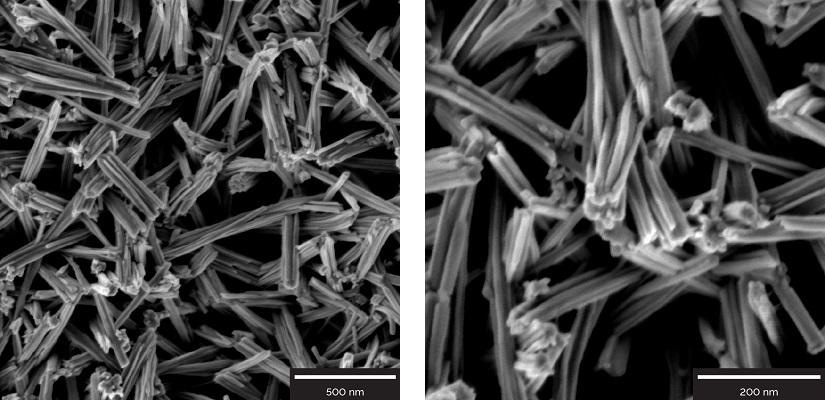Ceramic materials are used in a wide range of applications because of their diverse properties. In general, ceramics are considered as materials with great mechanical properties and high-temperature resistivity. However, ceramic materials also exhibit useful electrical, optical, and biological properties. The properties of ceramics strongly depend on chemical composition, crystallography and porosity. Hence, their applications spread through different fields ranging from grinding materials, bearings and disk brakes to coatings on jet engine turbine blades and biological implants.
Ceramics are produced from powder precursors that are subsequently heat-treated using a sintering process. The process of sintering is important and influences the final material properties. The final material properties are determined by the bulk material forming or shaping process and by the properties of the particles. The size and shape of the particles are the crucial parameters which must be considered when the material and its properties are designed. Therefore, the particles are a basic parameter affecting the bulk material. The size of the particles together with sintering temperature affects the final grain size and shape, thus this is important from the point of view of the material forming and pores creation. The size and shape of the particle is determined by the powder preparation process. Therefore, the synthesis of the particles is a very important step developing the new material.

Figure 1, 2. The particles of sodium nitrate crystals synthesized by hydrothermal treatment of titanium substrate in sodium hydroxide solution under nitrogen.

 Want to know more? Click here to read the full article.
Want to know more? Click here to read the full article.
TESCAN Group
Founded in 1991 by a group of managers and engineers from Tesla with its electron microscopy history starting in the 1950’s, today TESCAN is a globally renowned supplier of Focused Ion Beam workstations, Scanning Electron Microscopes and Optical Microscopes. TESCAN’s innovative solutions and collaborative nature with its customers have won it a leading position in the world of nano- and microtechnology. The company is proud to participate in premier research projects with prominent institutions across a range of scientific fields. TESCAN provides its clients with leading-class products in terms of value, quality and reliability. TESCAN Group is the North American arm of TESCAN Group, a multinational company established by the merger of Czech company TESCAN, a leading global supplier of SEMs and Focused Ion Beam workstations, and the French company ORSAY PHYSICS, a world leader in customized Focused Ion Beam and Electron Beam technology.

This information has been sourced, reviewed and adapted from materials provided by TESCAN Group.
For more information on this source, please visit TESCAN Group.